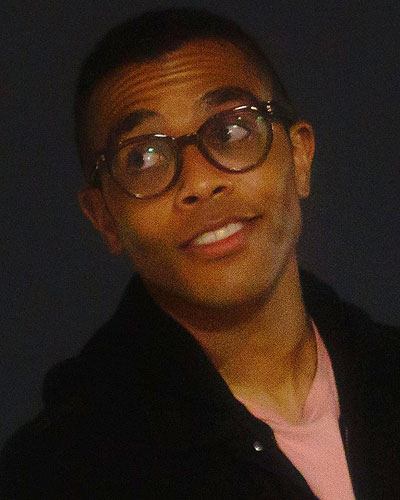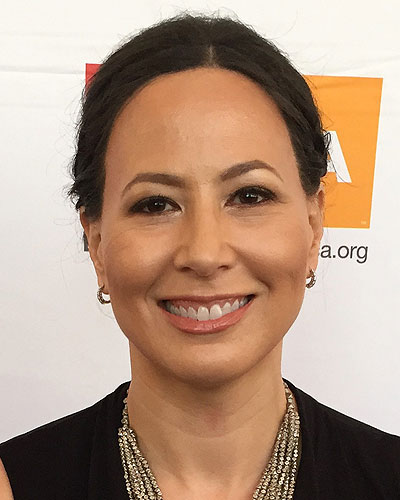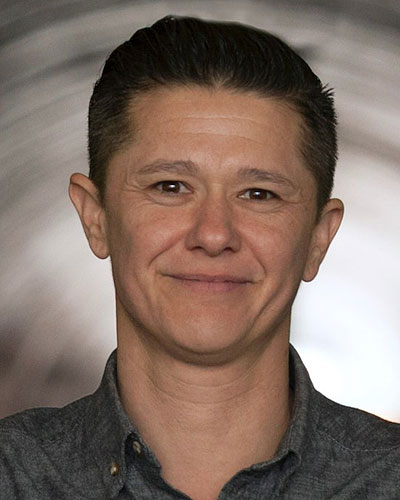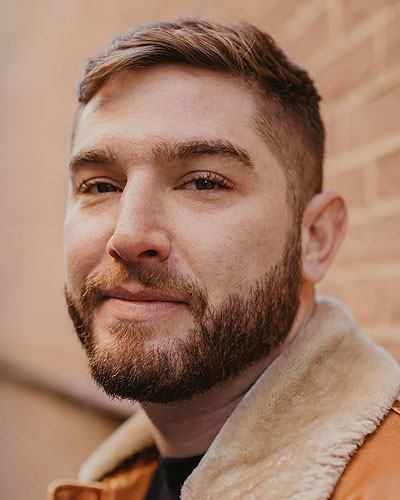
Take Pride
In honor of Pride Month, out writers share their thoughts on the state of the industry, the importance of allies, and why the concept of “Pride” is still relevant in 2021.
(6/4/2021)
June is Pride Month, a time to celebrate community, self-affirmation, and the courageous trailblazers who paved the way to achieve—and who continue to seek—LGBTQ+ rights. And while the movement has achieved major victories over the decades, from greater protections against workplace discrimination to marriage equality, the decades-long fight for LGBTQ+ liberation is not yet over. More than 50 years after Stonewall, being visible—and being seen—as an out LGBTQ+ person at work and in daily life remains a powerful personal, even political, act. There is still more work to be done to achieve true parity, across the country and in Hollywood.
As poet Audre Lorde once wrote: “Revolution is not a one-time event.”
Art has the power to change minds and open hearts, and in the last several years, we’ve witnessed a progressive rise in LGBTQ+-inclusive films and TV shows, especially on streamers and cable, many written by gay, lesbian, bisexual, transgender, and nonbinary writers.

Courtney Perdue
To help commemorate LGBTQ+ Pride Month, Connect asked four LGBTQ+ writers about queer representation, both on and off screen, allyship, and the continued value of LGBTQ+ Pride in 2021. Guild members Courtney Perdue (Bigger, Gossip Girl), Tonya Kong (The Wilds, 9-1-1, 9-1-1: Lone Star), M.W. Wilson (Manifest), and Josh Feldman (This Close) share their thoughts in this virtual roundtable.
As our culture has progressed on LGBTQ+ issues, we’ve seen greater representation of LGBTQ+ characters and narratives in entertainment. Why is Pride still relevant in this moment?
Perdue: While we’re living in a moment where more LGBTQ+-centered stories are making it to screen—albeit a tad heavy on the traumatic, which we need to work on—there’s still a strong view of otherness toward the community in this country, and in order to change that, visibility is necessary. Pride is necessary.

Tonya Kong
Kong: The rise of authoritarianism and nationalism has reversed LGBTQIA+ progress worldwide. The previous U.S. presidential administration dismantled or undermined myriad gains in federal legal rights and protections for our community, actively promoted discrimination, and refused to even recognize Pride month for four years.
The celebration of Pride in June uplifts queer culture through promoting equality, dignity, and self-affirmation. Pride also seeks to increase society’s awareness of the issues the LGBTQIA+ community faces. In light of the recent hostile political climate and physical isolation due to the COVID-19 pandemic, where the community could not seek companionship and comfort together, Pride has never been more relevant than in 2021.

M.W. Wilson
Wilson: There’s still much need for greater LGBTQ+ representation in media and for Pride. We exist amongst communities of every identity group and walk of life, yet I think it’s fair to say we share one thing in common: a long, and still ongoing, history of silencing and erasure by our dominant cultures and, for many, even our own families.
To fully embrace who I am, I needed to find queer spaces and community. Pride offers one such place. At my first Pride in San Francisco I saw a joyous crowd that far out numbered the angry religious protestors with their nasty signs. I saw elders who’d paved the way for younger generations riding in places of honor. I saw a whole language of queerness constructed of rainbows, glitter, leather, gold lame, and so much more—a language of people seeking connection.
Pride serves as a reminder and celebration of those who came before us and their legacies, as well as of each other. Additionally, Pride will continue to be of use for necessary political action on behalf of LGBTQ+ people and the multitude of communities to whom we also belong.

Josh Feldman
Feldman: Pride is still relevant in this moment because we're still a minority and we still live lives worthy of celebration. Our community is a beautiful, multifaceted one, and Pride truly is a time where we can allow ourselves to celebrate how far we have come while also at the same time recharging our batteries for more fights to come. It's also a great time to step back and see who is also on the front lines with you.
In addition to being your authentic self as an LGBTQ+ person, how do you, as a writer, try to ensure and increase authentic, accurate LGBTQ+ characters and narratives in film, TV, & streaming platforms?
Perdue: I try to make sure that LGBTQ+ characters and stories I create aren’t monolithic to shake stereotypes. Not everyone can drop pop culture references on a dime (I can) and not everyone watches RuPaul’s Drag Race (I don’t), and the more common it becomes to show varied depictions of LGBTQ+ characters, the less pressure it puts on people finding their way in the community to feel like they haven’t reached the qualifications to be recognized within it.
Kong: I think fellow coworkers would agree I’m a passionate advocate for my POV in general, but especially when it comes to storylines regarding women, people of color, and LGBTQIA+ characters. I can be an intense proponent, but never just for the sake of argument. Sometimes you have to work a little to educate or attempt to open people’s minds to a different way of thinking about these specific characters and stories. Because television is such an influential medium, it’s important to also extrapolate how they might affect the communities they portray, as well as society in general. There are a multitude of legitimate/warranted LGBTQIA+ characters and storylines, but right now I’m personally drawn to ones that are less focused on trauma, and are more positive, relatable yet nuanced, ultimately hopeful, and integrative to the overall series.
My personal process involves subject matter research and soliciting/listening to the opinions of junior-level staff, who usually have fresh and valuable perspectives. I also enjoy spending time with actors to get a sense of their inner stories and personalities, and I study film and dailies for hints about different parts of their range that might spark or align with a story idea.
The audience response and overwhelming success of the LGBTQIA+ characters in The Wilds and 911: Lone Star this past year (both shows received nominations for Outstanding Drama Series by GLAAD) has been a meaningful career highlight. Hopefully, I can continue to help tell those kinds of impactful stories.
Wilson: In order to increase authentic, accurate representation of LGBTQ+ characters and narratives, I aim to maintain a level of curiosity about the possibilities for dynamic, character-driven narratives while also keeping an eye out for and avoiding harmful stereotypes and story tropes.
In the writers’ room, I think it’s important to keep in mind that none of us has all the answers to the complex questions that can arise around character identities and what it may mean to put particular stories out into the world. Yet when our Spidey sense tells us that something doesn’t ring true, or may be damaging in a broader cultural sense, it’s well worth further exploration. I find it’s always helpful to pitch solutions to anything that I may find troubling, and have been lucky to work in a room where other writers practice allyship by being open and receptive to discussing these kinds of concerns.
Feldman: As a deaf gay writer I am still starved for representation, because I grew up waiting to find myself on television and in the movies. One way I'm doing that is to try to find ways to go back in time, so to speak, and find ways to put deaf gay characters in varying genres, and different time periods, because we have always been here. There have always been deaf gay people, which is why my goal is to create deaf gay characters in every time period, and every genre, so future generations of deaf gay kids and people will always be able to find themselves in movies and on television.
Our union is stronger when writers unite across our differences. What is something that allies in the Guild can do to promote a more welcoming industry for LGBTQ+ writers?
Perdue: Listen. Listen and realize that all LGBTQ+ experiences aren’t the same. They’re as varied and diverse as racial, ethnic, and cultural backgrounds and should be treated as such. It’s all about the nuance and, as we create a more diverse Hollywood system, those nuances need to be taken into account—because, despite how someone identifies, you have no idea what a person’s life is like until you genuinely ask…and listen.
Kong: The Guild will be at its strongest and most effective when representation from each minority group is achieved at the highest levels of the union’s power. This can’t happen soon enough. All voices should be present during MBA or other important negotiations to ensure that representatives on the other side of the table are required to listen to the writers who may be most negatively impacted by certain contract provisions, or lack thereof. Direct involvement in the upper levels of process is also a much better way to learn and understand the scope of the Guild’s operation, and the breadth of issues it faces.
Also, I’d love to see the Health Fund trustees consider comprehensive and fully inclusive transgender health care that aligns with WPATH (World Professional Association for Transgender Health) standards. Every writer deserves the best health care possible!
Wilson: I think of allyship as a method of thinking and a process, rather than any single action. When it comes to allyship with the LGBTQ+ community, fostering work spaces and rooms that are aware and inclusive of gender and sexual diversity seems paramount. Supporting stories that include LGBTQ+ characters that make sense for our shows, whether they ultimately go to air or not, is another way to show LGBTQ+ writers that you see us as whole people whose stories are worth telling.
Feldman: The best way to be an ally is to constantly be looking for us. It's not enough to just sit there and wait to be taught and shown a new perspective. That's why the old cliché “a seat at the table” is still so powerful and true today—make sure we have a seat at the table by seeking us out.
Writers Guild members: If you’re interested in getting involved with WGAW’s LGBTQ+ Writers Committee, please visit our website.
